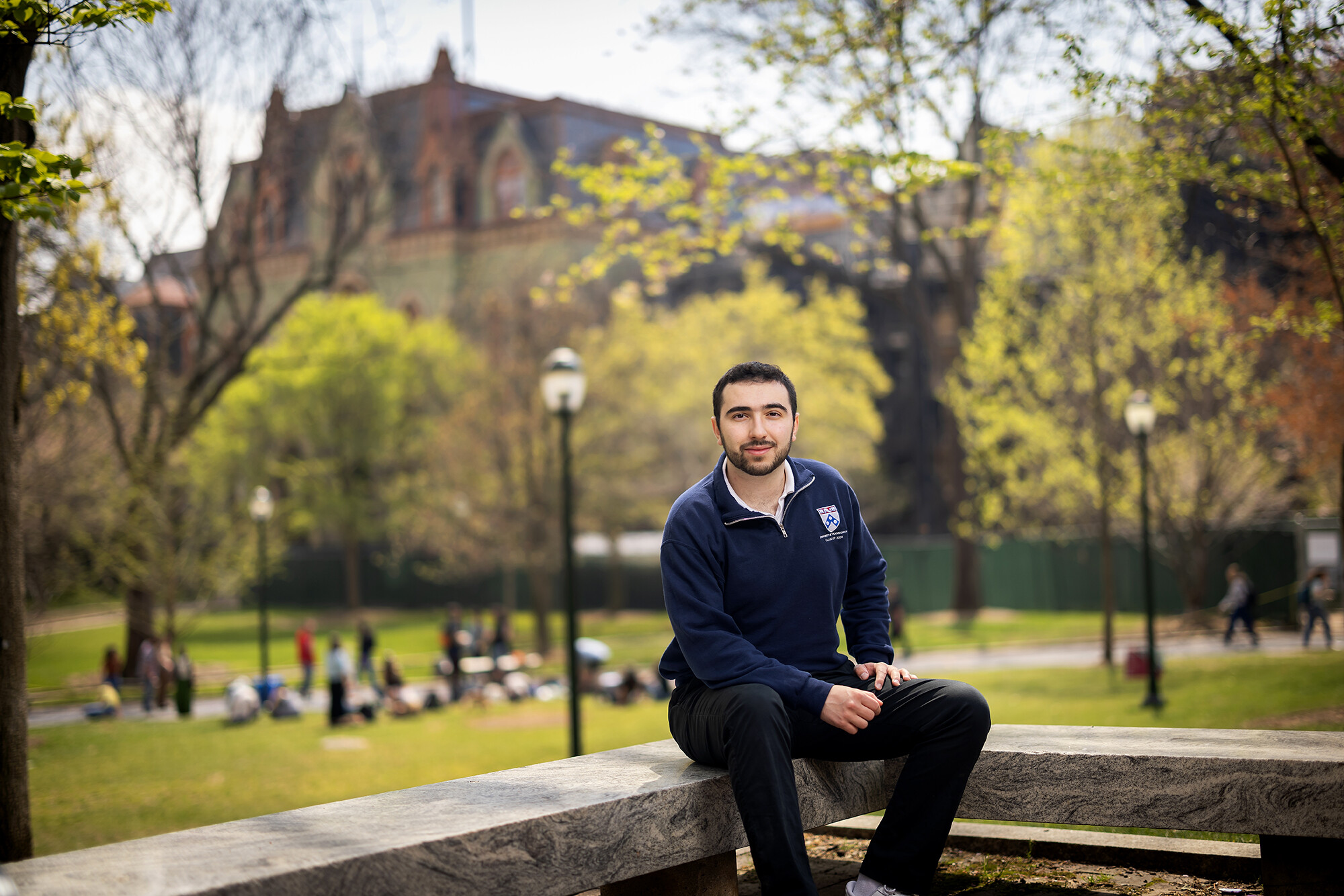
Image: Mininyx Doodle via Getty Images

Ara Patvakanian came to Penn knowing that he wanted to be an economist.
“I was admitted to Penn as a math-econ major; I stuck with that foundation and kept adding to it as I went,” says the College of Arts and Sciences fourth-year student from Los Angeles.
His inspiration to focus on that career path stems from his Armenian heritage he says and growing up hearing his parents—both economists themselves—describe the hardships they endured when Armenia’s economy cratered in the 1990s at the end of the Soviet Union.
“My passion for economics can be situated against a broader interest in the factors that constitute the human experience across the societal, spatial, and temporal dimensions,” he explains.
Patvakanian will graduate with majors in mathematical economics and political science, with a concentration in political theory. He’s wrapping up his thesis, titled “Modeling Macroeconomic Performance Through Energy Sourcing Dynamics,” and after commencement will be working at the Federal Reserve in economic research prior to enrolling in a doctoral program.
He says his two majors have given him “a deep understanding of the conditions that make economies run; why certain ones collapse while others thrive.”
Patvakanian argues for taking an interdisciplinary perspective on the multifaceted problems that society faces today.
“In both economics and political science, you are oftentimes focusing on interconnected issues,” he says, “but the questions that you pose and the methodologies through which you arrive at your answers vary considerably.”
Patvakanian has been active as a leader in the Economics Department’s Undergraduate Advisory Board and the Penn Undergraduate Economics Society and will be the flagbearer of the mathematical economics major at the College graduation ceremony in May. He is also a second-year resident advisor in Harrison College House, and somehow manages to find time to practice his guitar.
He says that he likes engaging friends in discussions on the application of math and economics. “I like to ask my friends in economics, ‘do we study human society with math or is our field fundamentally applied math with some potential applications to human society?’ I think the way someone answers this question says a lot about how they view the discipline’s position in the contemporary world, and what they believe we can contribute to prevailing discourse. I think, for my part,” he says, “economics is the study of human society with the rigor and precision afforded by mathematics.”
Patvakanian’s parents were born in Armenia when it was part of the Soviet Union. They emigrated to the United States after the collapse of the USSR in the 1990s, which was disastrous in both economic and political terms.
As the emerging leadership began to dismantle the collective ownership system that they had under the Soviet regime and transitioned towards capitalism, Patvakanian says, that shares in previously state-owned companies were apportioned among the citizenry in a rapid move towards privatization. “This process was rushed and, thus, severely botched,” he says. “In their haste to quickly transition towards markets, the leaders at the time were myopic with respect to the long-term political consequences that their reforms might have.”
Patvakanian’s childhood was full of stories about the “dark years,” a time during which millions of people lacked food and electricity, and hot water only ran for a few minutes every day. His mother studied for her classes by candlelight. Those who were dispossessed by the sudden political upheaval quickly needed money to meet their sustenance needs and so had no choice but to sell their company shares; those who were well-positioned to buy them did so. This dynamic culminated in the formation of the oligarchy in many post-Soviet countries.
“I grew up hearing stories like these, which had a notable impact on my subject area interests,” he says. “The interplay between politics and economics is insufficiently captured by either field taken separately. Though many couldn’t foresee it then, shock therapy ultimately had far-reaching political consequences that make their weight felt well into the future. That’s why I think it’s critical to complement ideological and professional persuasions with opposing viewpoints and approaches from adjacent fields.”
Patvakanian says he feels extremely grateful to have studied at Penn.
“I am fortunate beyond words express to have been at Penn and to have studied under instructors who are the absolute best in their fields,” he says, citing Frank Diebold and Dirk Krueger in the Department of Economics as well as Rogers Smith and Brendan O’Leary in the Department of Political Science, among others. “I don’t think I could have received a better education anywhere else.”
Kristen de Groot

Image: Mininyx Doodle via Getty Images

nocred

Image: Pencho Chukov via Getty Images

Charles Kane, Christopher H. Browne Distinguished Professor of Physics at Penn’s School of Arts & Sciences.
(Image: Brooke Sietinsons)